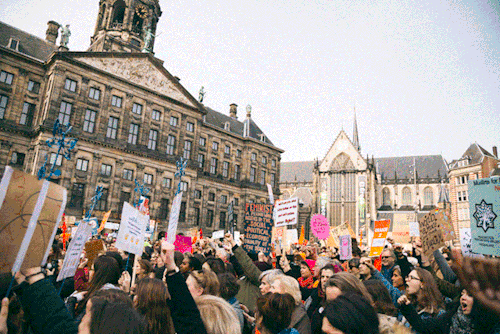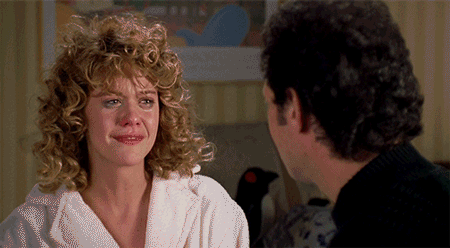Text
what is China’s social media status??

WHEN WE think about social media in china we often think about it as blocked and limited.
WHILE CHINA’S internet is one of the most censored worldwide, China also has the most internet users in the world. As well as 300 million micro bloggers, which is equivalent to the population of the US, which is a crazy stat to think about.
(A bit of history:) THE GREAT “firewall of China” is a nickname for the censorship of media in china. Implemented by the government. This evolved from 1987, when China first started monitoring online content. In 1998 the concept of a national filter known as “The Golden Shield” was introduced to block politically sensitive content from entering the domestic world.

THE GOVERNMENT, hires 30,000 people to ‘prowl’ through messages and posts who filter out “inappropriate” content, and language considered “offensive”. There is a confidential list of hundreds of words that they must look out for and report if necessary. This includes things like the president’s name and words related to topics of freedom. Which was exposed in 2004 when hackers got hold of a list of 987 words banned from qq, one of china’s largest chat forums.

CHINA’S APPROACH to censorship is somewhat smart with their method of “block and clone” eg. blocked google, then established “Baidu”, blocked Twitter, established “Weibo”. And even though these platforms are still strongly monitored, they provide a platform for people to feel as though they have a space where they can create their own media, post and talk to others. This is essential in preventing people from protesting in the streets against the government, avoiding riots etc. As seen in Tunisia. When social media was abolished from Tunisia and all access to the internet was blocked , protests on the streets caused much damage, resulting in serious cases of injury etc. Which China has avoided.

CHINA’S “WECHAT” is the 5th most used app in the world and has 1 billion users everyday, only just behind world wide Facebook, who have 1.47 visitors daily. The app is not like your average social media forum. It can be used for talking, posting, online shopping, booking taxis and a range of other services, that you would usually need several applications for. Which demonstrates how China thinks ahead in terms of media.
IN ZAO Jing’s ted talk about “the great firewall of china” he describes the censorship as a Cat and mouse game (government being the cat(lots of cats) Vs mice being internet users). He also put forward the concept that other countries, have been watching their citizens as well, and while not at the same level of China’s “cats” , he was worried that they may one day “hook up” and he thinks that’s something citizens globally should be wary of. I think this is an important concept to highlight as internet users should be aware of how they are being monitored.

https://prezi.com/p/snfrwm7xwezz/mda20009-group-assignment-wk11/
0 notes
Text
how has gaming changed??

GAMING COVERS a large spectrum, to a quick game of candy crush on the train to spending hours on end on xbox, the term “gamer” is something almost all of us can fit in.
VIDEO GAMES have evolved widely over the past 70 odd years.
“PONG” WAS the first video game to hit the scene, In 1978, invented by physicist William Higinbotham. The game resembled a tennis style concept. Followed by things like atari and Pacman video games were simple, fun and light hearted.

HOWEVER IN the 90’s, video games became violent and inappropriate causing controversy worldwide in terms of ratings and categories. Doom, Manhunt and The Punisher are all examples of video games seen to be extremely violent.
WHAT CONCERNS people most about playing an “R” rated video game over watching an “R” rated movie/film is the fact that in the video game the player is actually often making the decision and following through on actions of violence and fighting. This concept that the player is more involved is sometimes what actually makes video games more harmful and scarier as the player is immersed in the “world”.

ANOTHER INTERESTING aspect of these violent video games, is that someone was behind the storyline creating these scenarios, which is a scary concept. The creators of these games came up with how people were to be raped, murdered, kidnapped etc. all criminal offenses that in the real world would have the offenders jailed.
IN CONTRAST to violence orientated games, users are just as intrigued by more “G” rated apps, such as Fruit Ninja and Candy Crush. Candy Crush had over 2.72 billion downloads in the past 5 years and has “293 active million users”. The company has 2000 employees and as of 2018 had a revenue of 1.5 billion dollars. The addictiveness of Candy Crush can be attributed to the levels you progress through, given a certain amount of “lives”, combined with the unexpectedness of the game and the “emotions it arouses”.

0 notes
Text
can social media be good for your health??
I say yes

IT IS so easy to pick the flaws within social media when it comes to health.
IT IS often the first thing blamed for bullying, low self esteem, anxiety and other conditions. And while Social Media is unfortunately often a massive negative influence of these factors, it is worthwhile for us to also look at the pros of social media in regards to health promotion, awareness and creating supportive, controlled communities.

SOCIAL MEDIA has acted as a catalyst for public health campaigns, media campaigns and programs driven to increase awareness around issues, promote health, form communities and increase accessibility to health information, support, policies etc. Social media is often categorised as ‘unproductive’, ‘toxic’ and overall ‘bad for your health’, however in terms of marketing purposes in recent years social media has become the ‘go-to’ for brands, businesses and organisations. This is important for health services and fundraising as funding can often be low and the use of social media is generally cheap and if used properly, effective in gaining views and traction for a brand or cause.
A PRIME example of this is the #ALS ice bucket challenge. In 2014 facebook was flooded with videos of a range of both regular individuals and some of the world's most famous celebrities, including, Tom Cruise, Ellen Degeneres, and Mark Zuckerberg, tipping a bucket of ice cold water on their head in a variety of ways, with the same goal, being to increase awareness, spark conversations and raise money for ALS. The campaign snowballed as the concept involved challenging others to do the same. This process of tagging individual’s usernames created a ripple effect and spread world-wide at a staggering pace. The campaign raised 115 million dollars in the first two months alone.

THE OVERWHELMING success of this campaign highlights the abilities of social media in terms of how networking and advocating can interrelate.
IN TERMS of gathering people together it has also been found that the communities established on social media can be effective in giving people outlets to share their experiences as well as hear from others who have gone through the same. This has resulted in a sense of belonging for those who struggle to find people that understand what they are going through. It is nice to hear that some communities formed on facebook etc. are places people feel safe and connected, when it is often seen as a place for disruptive relationships.

0 notes
Text
social media meets “crowdsourcing”

THE ENORMOUS reach that social media has access to can be quite intimidating. However in times of crisis where action needs to be taken quickly social media has been a major contributor, for the better.
THROUGH THE instant process of publishing a status or post, further enhanced by adding hashtags and keywords, news travels faster than ever. Twitter is especially key in this process, as it is now seen as the platform where news is generally, first “exposed” or reported.

IN THIS transitioning period, to a more and more digitally oriented world, it is important we understand that Social Media can play a pivotal role in times of crisis. Whether it be rounding up volunteers, raising funds or sparking awareness. This concept of being able to being people's attention to an unfolding issue is vital to ensure the least amount of injury, pain, loss, suffrage etc. Especially in regards to natural disasters such as fires and floods.

WHILE THE issue I am about to elaborate on is far from a national disaster, I can’t help but to think there is definitely a large “crowdsourcing” aspect to how the situation unfolded.
THE PAST few days, any social media platform i’ve been on has been widely flooded with two names, Tati Westbrook and James Charles (both beauty influencers, business people and youtubers). While not a huge follower of either youtube stars, i soon found out that after Tati posted a youtube video that went for around 40 mins about James, he lost over 3 million youtube subscribers in a 2 day period.

WHILE I’M unaware of the full story, the way in which these 3 million subscribers watched Tati’s video and then rallied behind her suggests a type of crowdsourcing. She was reaching out to her followers for support and and resulted in a community that turned their back on James in a “crowd” type manner.
0 notes
Text
why is TROLLING a thing??

(haters gonna hate)
WHY IS it so so easy for people to talk sh*t about others rather than say something that is nice, uplifting or possibly somewhat constructive???
AND FOR some reason people are even more inclined to spew out hate on social media platforms. #why??.
SOMETHING ABOUT sitting behind a screen makes people all of a sudden think they can say whatever they want??? Yes everyone has their opinions, which is a good and important thing. But there is a line between “commenting what you think” and being destructive towards someone/something else. And it’s just not on.

THERE’S JUST some things you shouldn’t say to someone whether it be on, or offline. (if you have nothing nice to say don’t say anything at all - said by parents & teachers everywhere).
“KEYBOARD WARRIORS”, a relatively new term, but one that we shouldn’t need. The modern day “bully”, that sits at a keyboard, looking at posts, photos, texts etc. and picking out the “worst” aspects of it, whether it be who’s in the photo and what that person looks like, to who took the photo and what they are wearing.. This “hate” often stems from personal matters, situations and possibly insecurities that in fact have nothing to do with the topic/post they are shredding. Due to the unfortunate reality that some people make themselves feel better by putting others down.

THE FACT that the concept of “trolling” has become a verb is quite a daunting thing to come to terms with. Like this is actually something people do regularly and often, by choice. I say “by choice” because sometimes it in fact isn’t really. Some people are hired and paid good money to “troll” a business, organisation or person’s online platforms. And it is devastating that this is something that has actually taken off and become quite popular in the digital world. As if “face to face” bullying, in the playground or office wasn’t a big enough problem?
AS PEOPLE become more aware of the horrible effects hurtful, derogatory comments have on people’s mental, social and physical health I would hope that this cyber bullying epidemic comes to a halt very quickly so people can continue to use social media in a productive, respectful and kind way that we know it can be. could happen?

0 notes
Text
protesting isn’t a bad thing

PROTESTING IS something that is ingrained in us from a young age, at different extremes.
WHETHER IT’S from chucking a tantrum in the supermarket for a lollipop, making up excuses to not eat your vegetables when you’re a child, begging to go to a sleepover when you’re twelve or wanting to go to a party on the weekend when you’re in highschool.
IT IS at these moments, when we really want something, that we are able to come up with what seem like seamless reasons behind why we should get our way and how others should fall in line with us.
AND WHILE I don’t think adults should walk around throwing tantrums in order to get people to do what they want, In some ways it is sad that a lot of people lose this passion of fighting so strongly for things they want or think other people should know. And when I say things they “want” I don’t mean a new car or house, but more along the lines of things like tackling climate change, working towards eradicating poverty or simply standing up for groups being bullied or harassed.
A FEW weeks ago was a good and not so good week for protesting…. Context; the corner of Flinders Street Station was flooded with Vegan activists taking their stand on the animal cruelty and environmental damage that is caused by the excessive amount of animal products we not only consume but also wear, use and waste :((.

IT OFTEN takes only one or two videos about the conditions in which these animals are kept and how they are treated as well as the very very real environmental consequences surrounding killing animals for food and product, to alert people and evoke them to change their consumer practices. The fact that after being exposed to these realities that people are so willing to turn vegetarian or vegan proves that there is clearly something wrong with the practice of our reliance on animals for our “survival” and that we don’t actually know the implications our consumerist qualities have on the environment.

WHILE IT is very annoying that people were late to meetings, work, appointments, uni classes, etc. as a result of the protest, it did spark conversation surrounding what veganism is. Unfortunately as it did inconvenience a lot of people the conversation was mainly negative towards vegans as people were forced to use their protest as an excuse for their being late. The protestors had the right intentions at heart however the situation could have been brought to the generals public's attention in a less inconvenient way.
THIS BRINGS forward the idea that maybe the movement could have been more effective if taken on social media. In previous years we have seen the overwhelming success the use of hashtags can have in triggering campaigns. The reach is wide and posting is free of charge making social platforms like twitter and facebook maybe more practical areas for stating a point of view and argument.

0 notes
Text
#what #is #AusPol ???

IN SHORT #AusPol = Australian Politics.
#AusPol COVERS rumours, facts, opinions and overall speculation of the events of Australian politics in a way that raises awareness among Australians.
THIS HASHTAG was evolved in an effort to group comments and opinions related to Australian politics and our politicians, on the social platform, ‘Twitter’. These posts are published by a mix of everyday Australians, public figures, politicians and anyone who has something to say in regard to the current state of Australian politics and it’s current affairs.
#AusPol MAKES it easy to access anyone’s posts surrounding the topic as by searching the hashtag you can see the most recent posts with the tag in a second of looking it up. It conveniently acts as a way to view people’s tweets related to their thoughts on Australian politics and related figures.
KNOWING TWITTER is not a published forum or traditional moderated news source, people are generally able to gain a diverse range of opinions, diluting the bias that can sometimes surround political advertising, newspaper articles or interviews. With this context Australians are able to hear from people who may not otherwise have the social following or opportunities to present their worries or criticisms of how politics in Australia is shaped and who makes our decisions for us.
THE FACT that this community is prevalent on social media is very important as it means it is accessible to young Australians. Traffic from his generation is necessary as it is these people, who in a lot of ways are the ones we need to be hearing from in relation to what needs change. Whether it be education, employment, public transport, housing prices it is the opinions of, (the often frowned upon generation of) ‘millenials’ that we should be hearing from. It is these individuals too that are growing up to be Australia’s next politicians, celebrities, lawyers, teachers and (new and ever important career) “influencers”. It’s this generation that needs to be included in political discussions and debate as their opinions are valid and relevant. A lot of them also want to make a difference and have a passion surrounding the state of Australia and the world often being the ones to point out acts of discrimination, exploitation and ignorance towards issues such as global warming and cultural barriers. A key example of a young Australian taking action is ‘Egg Boy’, who publicly egged Australian politician, Fraser Anning. This action went viral and sparked conversations world wide. This doesn’t mean that everyone needs to go out and egg someone they disagree with, but more importantly strive to raise awareness and conversation towards what they are passionate about. Which #AusPol really aids in doing.
Bogle, A 2016. ‘#AusPol: The twitter hashtag Australia can’t live without’. (online) https://mashable.com/2016/03/21/twitter-australia-auspol/#DYlBmXG9MEqW.
Stott, R 2015. ‘12 fun facts about the auspol hashtag’. (online) https://www.buzzfeed.com/robstott/13-fun-facts-about-the-auspol-hashtag.
0 notes
Text
is TUMBLR a blog or a social networking site??
asking for a friend.
WE FIRST officially heard the word “BLOG” in December 1997. Flash forward -> about two decades and the action of ‘blogging’ has become an escape, hobby, distraction, occupation and career..
BLOGGING HAD a quick and successful growth period; starting from just 23 listed blogs on the internet in 2000, to a crazy 50 million in a period of 4 years :O !! And while a lot of people may consider blogging a “dying” art form, I think it’s probably more appropriate to acknowledge it, (like many other media mediums atm) as having simply, just changed, since it first made its way onto the scene(/screen), in the late nineties. Which makes sense considering the continuous development of technology, internet and the popularity of all things “social media” in today’s world.

I THINK Tumblr could be considered a midpoint between BLOG and SOCIAL NETWORK site. The ever-changing platform allows anyone with access to a device to post images, video, text and audio to a worldwide audience through a single domain. This ability to regularly publish content to an audience fits the description of both blogging and social networking. Establishing the idea that there really isn’t much separating blogging and social networking.
IF ANYTHING the relationship between tumblr/blogging/social networking raises the idea that social networking is an important aspect of blogging, and blogging also influences social networking.
SOCIAL NETWORKING sites such as, Instagram is an effective way for bloggers to build their brand, and reach a wider audience, targeting the crowds who may be unaware of the blogs predominantly published on single websites. Utilising these various available platforms is an efficient way to market and advertise, to increase views and a resulting level of popularity.
IF WE are categorising Tumblr as a blog, I would probably suggest the likes of, Instagram, Snapchat and Facebook all fall under the same umbrella. As similarly to Tumblr, these platforms allow (pretty much) anyone to share their views with the public.
PERSONALLY A lot of the personalities that fill up and/or drain my Instagram news feed, post considerably long captions quite frequently, causing me to think even that could be considered a type of blogging??? They update their content regularly, sharing opinions, current affairs and just general stuff that could probably make up a blog type forum to say. Maybe in a less obvious format?
SO I say, Tumblr acts as a space people can gain access to information and inspiration as well as sharing their thoughts and knowledge with others. Proving to demonstrate qualities of both a BLOG and SOCIAL NETWORK site.

Reddy K 2018 'The evolution and history of blogging', https://alejandrorioja.com/blog/history-of-blogging/.
Moreau, E. 2019. “How to Use Tumblr for Blogging and Social Networking”. https://www.lifewire.com/how-to-use-tumblr-4049305.
Redfurn, H. 2018. “Is Blogging Dying?”, https://www.abookishbaker.com/blog//is-blogging-dying-and-havent-they-been-saying-this-for-years.
1 note
·
View note